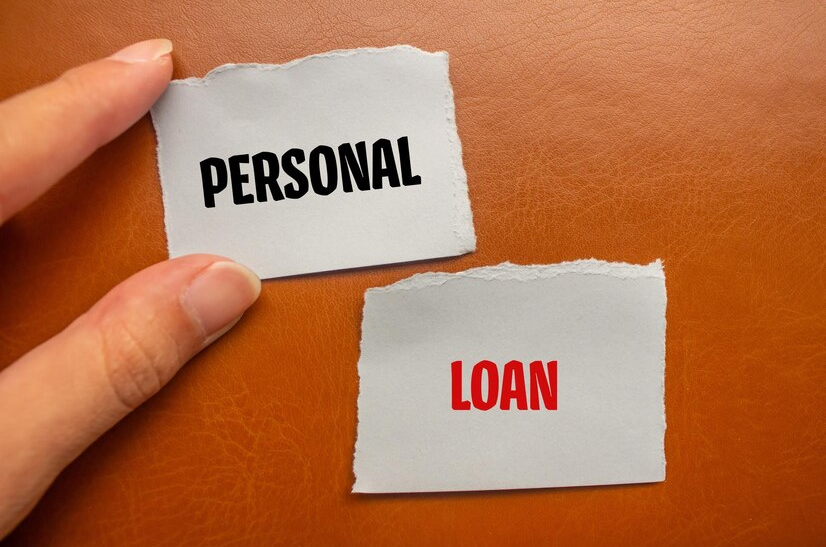While personal loans can be a convenient way to access funds for various needs, getting approved isn’t always guaranteed. Several factors can lead to a loan application getting rejected, leaving you without the financial assistance you sought. Understanding these reasons can help you improve your chances of getting approved in the future.
Factors Affecting Loan Approval:
Lenders assess a borrower’s eligibility based on several key factors to determine their creditworthiness and ability to repay the loan. These factors include:
- Credit Score: This three-digit number summarizes your borrowing history and payment behavior. A low credit score (typically below 670) indicates a higher risk of defaulting on the loan, making lenders hesitant to approve your application.
- Debt-to-Income Ratio (DTI): This ratio compares your monthly debt obligations (including existing loans, credit card payments, etc.) to your gross monthly income. A high DTI (typically above 36%) indicates you’re already burdened with debt, making it difficult to manage additional loan repayments.
- Employment History: Lenders prefer borrowers with a stable employment history, demonstrating consistent income and a lower risk of losing their job and being unable to repay the loan.
- Income Level: Lenders have minimum income requirements to ensure borrowers have sufficient income to comfortably cover their living expenses and loan repayments.
- Loan Application Errors: Inaccurate or incomplete information on your loan application can raise red flags for lenders and lead to rejection.
Common Reasons for Loan Rejection
- Low Credit Score: As mentioned earlier, a low credit score is often the primary reason for loan rejection. Lenders view borrowers with low credit scores as a higher risk, leading them to deny the application or offer less favorable loan terms like higher interest rates.
- High Debt-to-Income Ratio: A high DTI indicates you’re already stretched thin financially, making lenders apprehensive about your ability to manage additional debt. Reducing your existing debt or increasing your income can improve your DTI and increase your chances of approval.
- Insufficient Income: If your income falls below the lender’s minimum requirement, your loan application will likely be rejected. This is because lenders need to ensure you have enough income to cover your living expenses and make loan repayments comfortably.
- Unstable Employment History: Frequent job changes or gaps in employment can raise concerns about your financial stability and ability to repay the loan. Building a consistent employment history can improve your chances of approval.
- Negative Credit History: Late payments, defaults, or bankruptcies on past loans can negatively impact your credit score and signal to lenders a higher risk of delinquency. Maintaining a good credit history by making timely payments is crucial for successful loan applications.
- Incorrect or Incomplete Application: Submitting an application with errors or missing information can delay the process or lead to outright rejection. Carefully review your application before submitting it to ensure all details are accurate and complete.
- Co-signer Issues: If you have a co-signer on your application, their creditworthiness and financial situation will also be considered. If their credit score is low or they have a high DTI, it can negatively impact your application.
Tips to Improve Your Chances of Loan Approval
- Check your credit score and report: Obtain a copy of your credit report and review it for any errors. Address any discrepancies promptly to improve your credit score.
- Build a good credit history: Maintain a good credit score by making timely payments on your existing debts and credit cards.
- Reduce your debt-to-income ratio: Pay down existing debts or increase your income to improve your DTI ratio.
- Gather all required documents: Ensure you have all the necessary documents like income proof, employment verification, and bank statements readily available.
- Be honest and transparent: Disclose all relevant information accurately on your loan application.
- Compare loan offers: Don’t settle for the first offer you receive. Shop around and compare different lenders’ terms and interest rates to find the one that best suits your needs.
Alternatives to Personal Loans
If your personal loan application gets rejected, consider alternative options to meet your financial needs:
- Negotiate with creditors: Try negotiating lower interest rates or extended payment plans with your existing creditors.
- Borrow from friends or family: Borrowing from close associates can be an option, but ensure clear communication and a formal agreement to avoid future complications.
- Explore government assistance programs: Depending on your specific situation, government programs might offer financial assistance for specific needs like education or housing.
- Sell unnecessary belongings: Consider selling possessions you no longer need to generate some income.


















